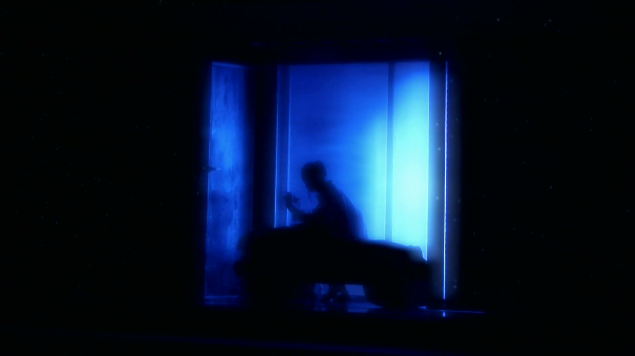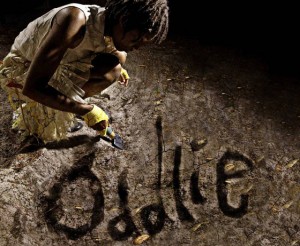…go on a business trip across that scary but wonderful empire called China. One wants a baby, the second one dreams with fame & recognition, the last one…, the last one doesn’t even know what to do of his life; and after nearly 2 hours of thunderbolt & lightning through a series of cold, dark & lonely settings we don’t even know how the story ends. Robert Lepage doesn’t want us to.
Because despite having 3 possible endings, they all come to criticize (not fiercely though) the hypocrisy of both eastern & western worlds and their mutual & necessary relationship. The Canadian society (the always admired & respected ) which could represent any western ideal, and then the Chinese one, struggling to keep their thousand-year-old habits while adapting capitalism and it’s wildest excesses.
Robert LePage retakes the action in early 2010, 25 years from where he left with his 1985’s “The Dragon’s Trilogy” success, same characters and authors as the last time: Robert playing Pierre Lamontagne, the conceptual artist now hiding his career failure as a gallery owner in Shangai, and Marie Michaud playing his ex-wife Claire, an alcoholic individual still trying to find answers to their marriage disaster…
And to many more things, because from the generalized torment all characters suffer from, Claire is without any doubts the most unstable & anxious human being. Thinking her status & wealthy situation may lead her to happiness by economically “adopting” a Chinese baby, she’s forced (but with a clear will at the same time) to revisit her past, torturing herself about what could have been but never was, wanting to captivate & establish with her eastern attitude (aka: money).
But then you find the role of Xiao Ling played by Tai Wei Foo, trying to survive (what else can she do..) in the spiritually “capitalistic” machinery China has become. From successful artist exhibiting her “natural ego” treated photography, to a mere forger/mother (this comes in as the most natural thing) whose only ambition is to reach the 25 copies a day her neighbor achieves; we must say in her defense that Van Gogh is clearly harder to copy than Da Vinci.

Tai Wei is also responsible for those stunning choreographs which together with the amazingly lubricated scene machinery and the funny & useful quick glimpses into the contemporary Chinese lifestyle & traditions, make Blue Dragon an outstanding pleasure of formal beauty & content. It’s impressive how such complexity in elements (shadows, image layering, dance, Chinese calligraphic paintbox, cinematic elements) all come so easily together.
And finally we have Monsieur Montagne himself, portraying the roughness of an indecisive maturity, or let’s say immaturity. A passive being waiting to be driven out of his comfortable Shangai house near the future Expo complex the government is building; passive and lazy to take life decisions. It must be hard to decide when they keep cutting your utilities.
On the other side some say it may not be aggressive enough or critic enough with the Chinese sociopolitics, but LePage & Michaud are not judging a culture from our traditional ethnocentrism, they’re here to entertain and make us think, a little, no too much though otherwise they would have needed lightnings every 2 minutes instead of every 10 to keep some awake.
Happy ending? We don’t know, all three possibilities we’re offered seem suitable and realistic, a perfect finale to this visual East-West orgy.
The Blue Dragon is still showing @Barbican Centre (London) until next Saturday, so if you have the chance (and money, you’ll need at least 16£, but better go if you can for a 30£ stalls seat) and happen to be in London next week, do go. You really won’t regret the adverse weather conditions of the piece.















